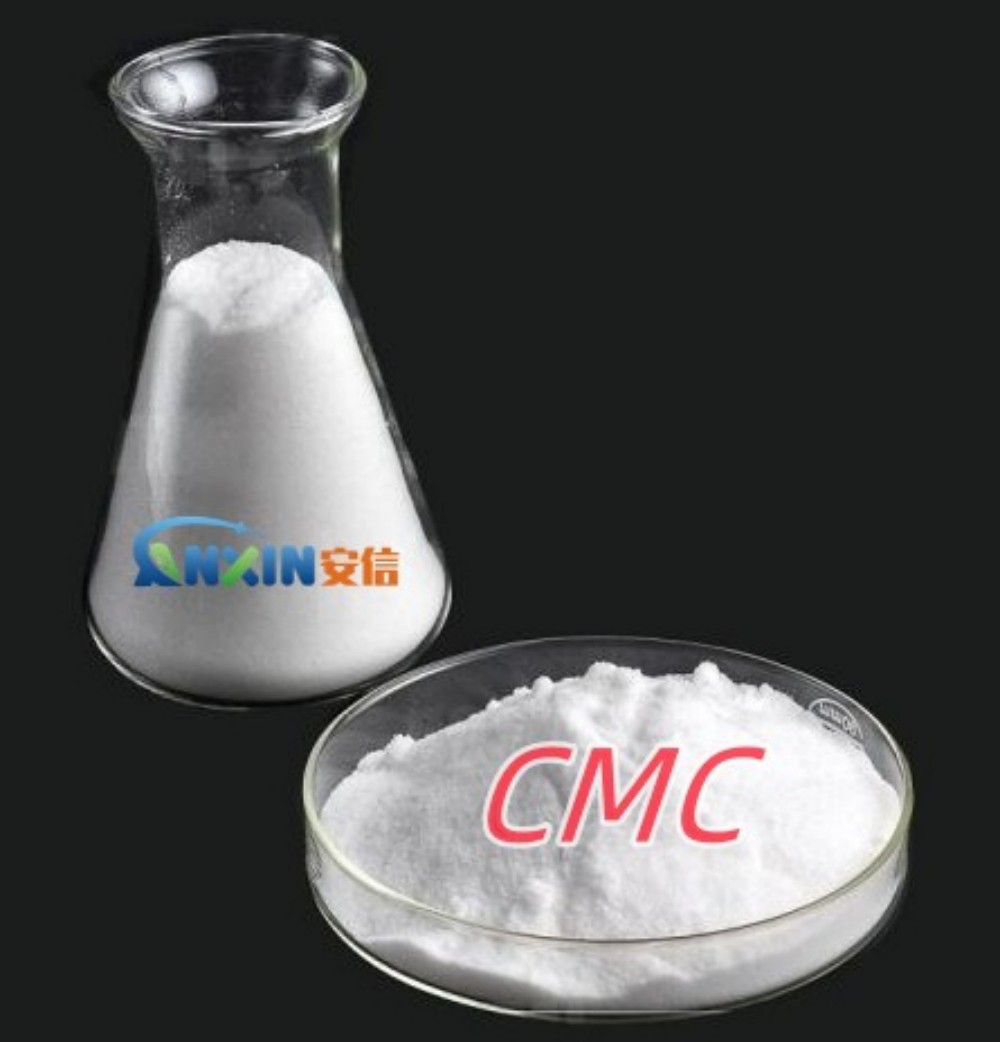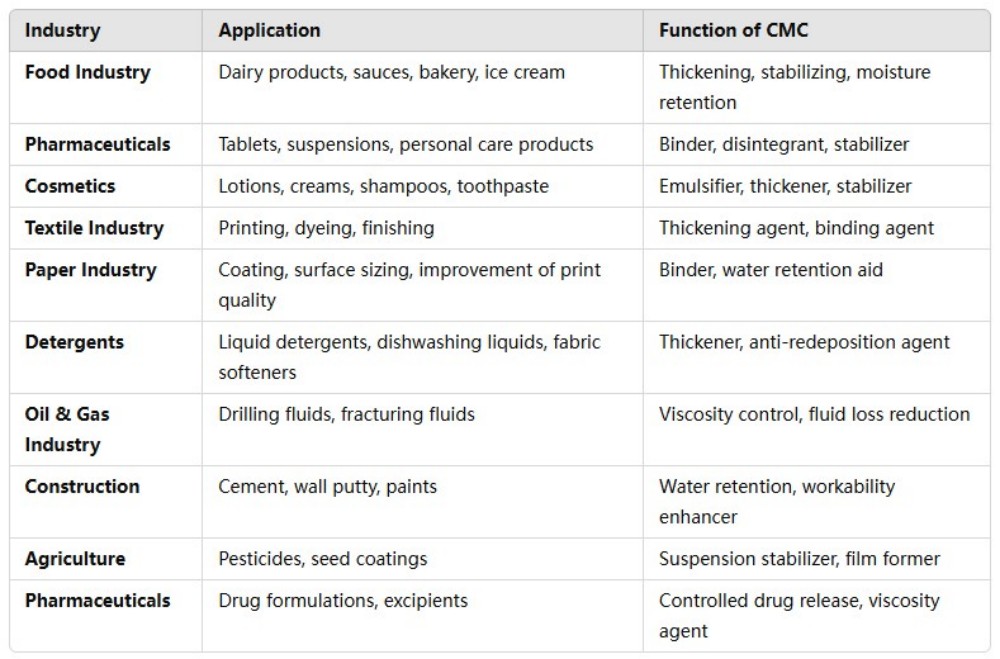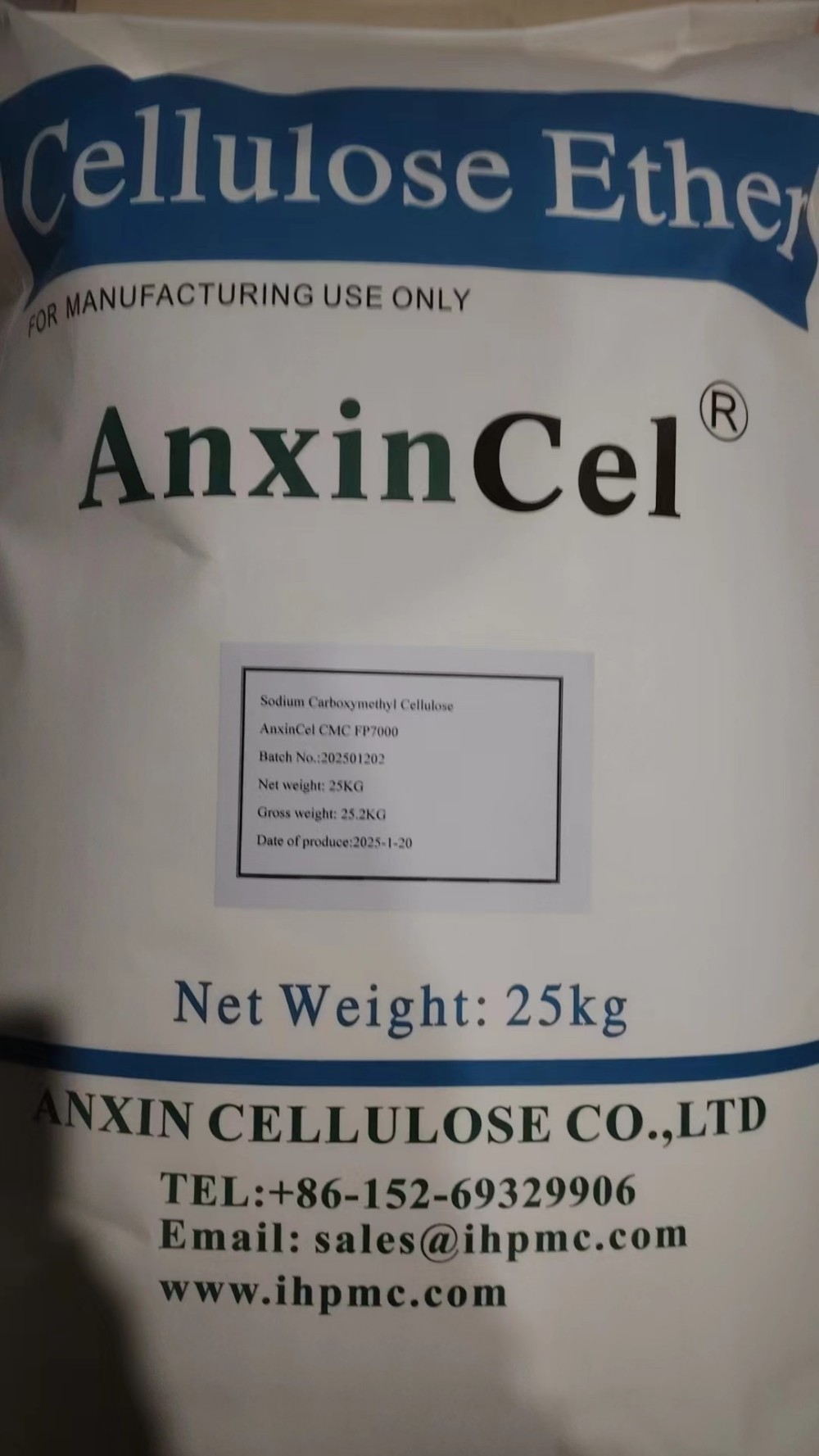Carboxymethyl Cellulose (CMC) is a water-soluble cellulose derivative with significant industrial and commercial applications. It is synthesized by introducing carboxymethyl groups into cellulose molecules, enhancing its solubility and ability to function as a thickener, stabilizer, and emulsifier. CMC finds widespread use in food, pharmaceuticals, textiles, paper, and several other industries.
Properties of Carboxymethyl Cellulose (CMC)
Water solubility: High solubility in cold and hot water.
Thickening ability: Enhances viscosity in various formulations.
Emulsification: Stabilizes emulsions in different applications.
Biodegradability: Environmentally friendly and biodegradable.
Non-toxic: Safe for use in food and pharmaceutical applications.
Film-forming property: Useful in coatings and protective applications.
Applications of Carboxymethyl Cellulose (CMC)
CMC is widely used across industries due to its versatility. The table below provides an overview of its applications in different sectors:
CMC is an essential polymer with numerous industrial applications. Its ability to improve viscosity, stabilize formulations, and retain moisture makes it invaluable across multiple sectors. The continued development of CMC-based products promises further innovations in food, pharmaceuticals, cosmetics, and other industries. With its biodegradable and non-toxic nature, CMC is also an eco-friendly solution, aligning with sustainability goals worldwide.
Post time: Mar-25-2025


